10 Daily Techniques to Boost Your Creativity
Who said only certain people are creative? We all know the rhetoric: “I’m not a creative person”, “you either have it or you don’t”. Yet everyone sees the value in creativity, and the psychological benefits to creativity include innovative problem-solving, stress relief and keeping spirits high – all of which are perfect tools in the workplace, our ever-expanding to-do lists and during challenging times. Having a few daily techniques to hand will help boost your creativity and bring fresh perspective to the everyday.
1. Move for Creativity
One of the handful of lessons learned through last year’s lockdowns was the merit of movement. Much of the world saw the allocated window of time allowed for a walk or exercise as the biggest break from an otherwise mundane working weekday or uneventful weekend. While we may not be in a hurry to go back to this way of spending the day anytime soon (or ever), our moments of movement are still as valuable today as they were back then.

Essential Exercise, Garage Trampoline by Brent Lukey shows how even the space between the garage door and the street became a place for an hour’s exercise last year!
Research has for a long time shown that regular physical activity can play an important role in boosting and protecting cognitive abilities. A study in 2014 found that people tend to be more creative when they are walking rather than when they are sitting down, temporarily improving certain types of thinking. Entrepreneurs such as Richard Branson, as well as writers like Kurt Vonnegut, are known for their exercise habits. In fact, it’s estimated that up to 90% of people are more creative after exercise! So next time you’re tied to your desk and struggling to come up with a good idea, try going for a quick walk to get that much-needed strike of inspiration.
2. Wake Up Early for Creativity
We know, we know. Waking up early is hard! Ernest Hemingway reportedly woke up “as soon after first light as possible”. “There is no one to disturb you and it is cool or cold and you come to your work and warm as you write,” he once explained. By waking up early, you can make meaningful work before most people are even out of bed.

Of course waking up early would be much easier if this were our view! Featured: Farihaven Sunrise by Piers Buxton
3. Surround Yourself With Inspiration
Scientists and artists alike agree on the power of your surroundings and their part to play in the creative process. Positive psychologist Mihaly Csikszentmihalyi has extensively contributed to research that supports the role of our surroundings in our creativity levels. What sort of things do you find inspiring and motivating? Having objects that relate to that motivation can encourage creativity. If you’re working from home, for example, try curating a home office space that you feel energised in through colour, decor and artwork.
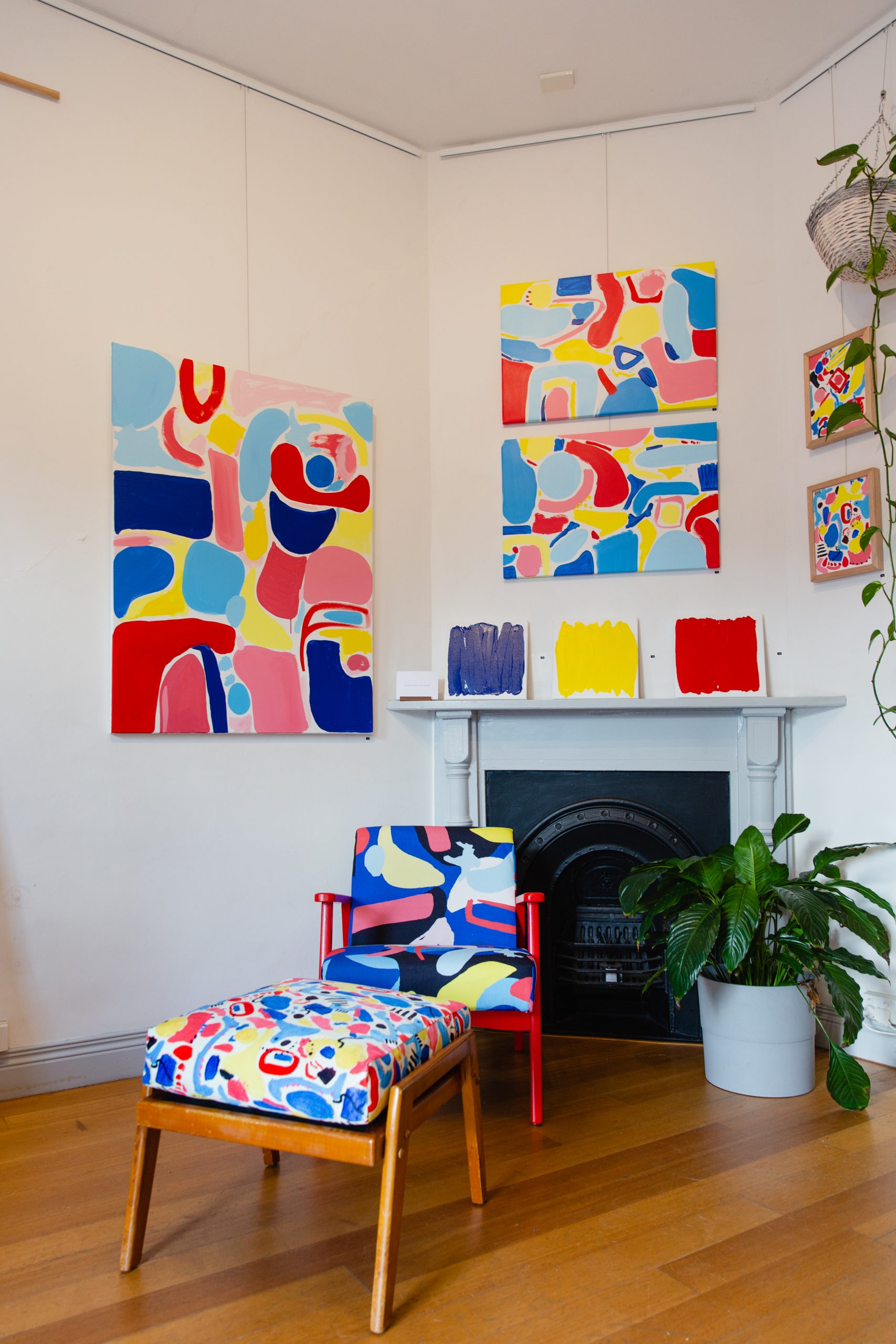
The concept behind Ellen McKenna’s recent Feeling Colours show at our Melbourne gallery was to explore how colour affects mood and to inspire visitors to create colour havens in their own homes
4. Explore Art Mediums
It doesn’t matter if you’re an artist by trade or haven’t picked up a paintbrush since high school: getting involved in the arts is a great way to improve your creative ability. From weaving, to photography, to pottery, there’s no limit to the ways you can explore art mediums to boost your creativity. If you’re already an artist, why not try a new medium? Painters, meet photography. Photographers, perhaps have a go at ceramics!
5. Meditate
Stuck in a mental rut? When panic strikes or you’re in the 3pm slump, give meditation a go. Heaps of studies show it promotes divergent thinking, which is a key state of mind for generating new ideas. Research has also shown that certain types of meditation are linked to an increase in creative thinking.
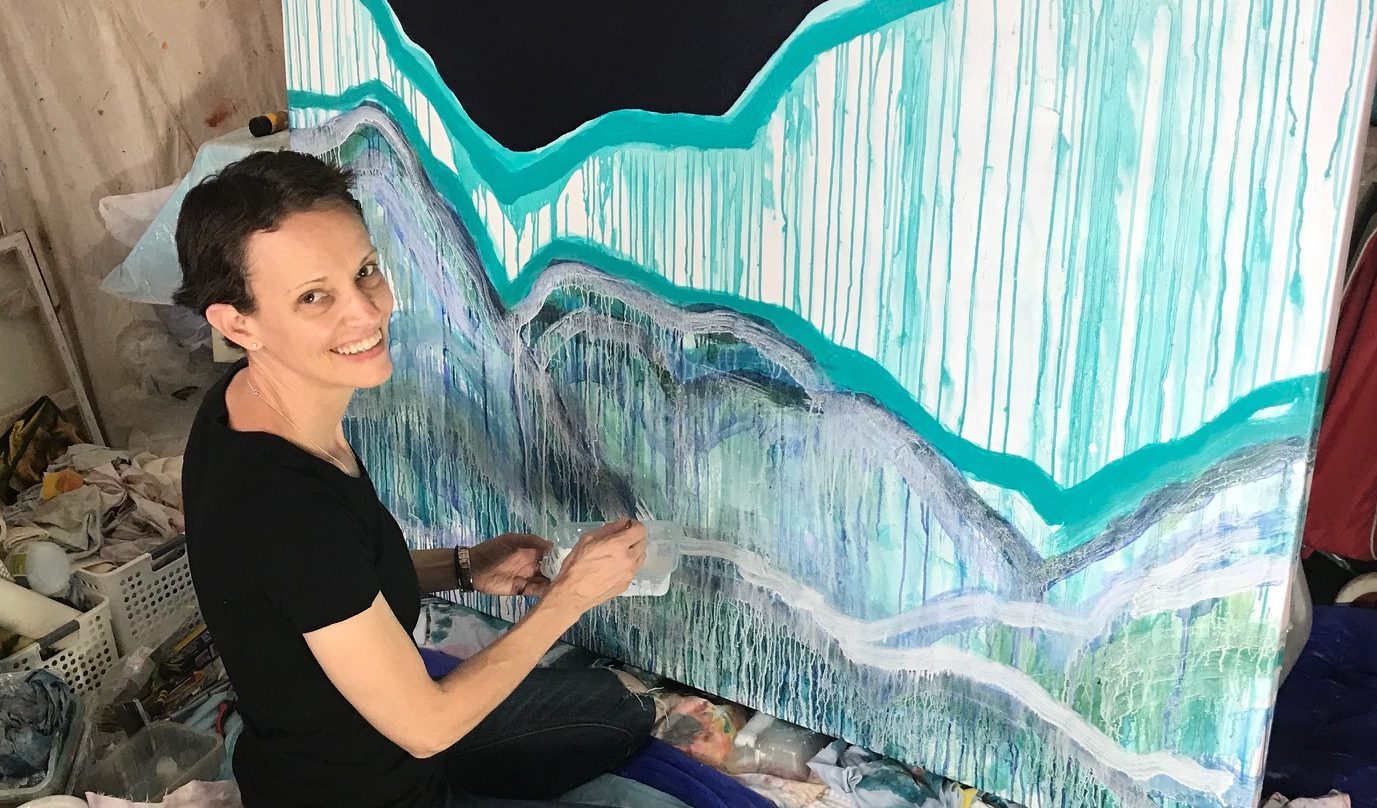
The abstract, intuitive work of Yvette Swan is a testament to meditative practices. Discover more about her journey exploring consciousness through art by clicking here.
6. Keep a Creativity Journal
Want to track your creative process and progress? Not only is journaling a useful practice for writers, artists, musicians and those in creative work; it encourages capturing ideas and self-reflection, both of which are key skills for creatives. It’s also a useful skill for entrepreneurs and busy executives as it fosters clear thinking.
Famous journal keepers include inventor and artist Leonardo da Vinci, Mexican painter Frida Kahlo and entrepreneur Benjamin Franklin. If such a variety of historical figures all benefitted from a journalling practice, this demonstrates just how versatile and powerful making it a daily habit can be.
7. Make Time for Creativity
Developing skills of any kind takes time. Creativity works just the same! Setting aside allocated chunks of time in your schedule to a creative project gives your mind a break from the day’s demands, not to mention the opportunity to cultivate your artistic outlets.
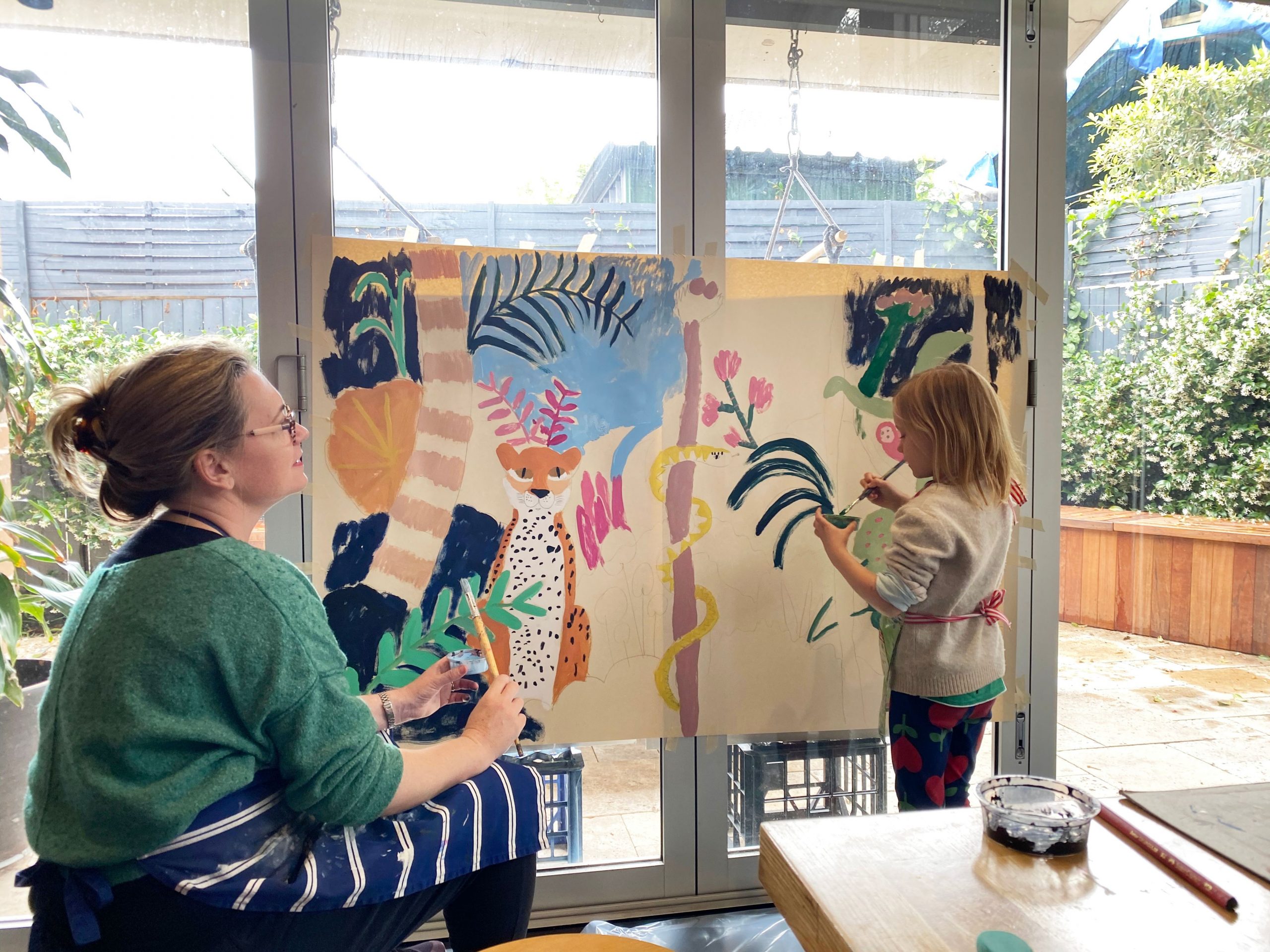
Bestselling artist Sally Browne puts time to be creative with her family as a priority in her house. Read more on her approach to art as a family practice in our recent blog.
8. Take a Break
“There is virtue in work and there is virtue in rest. Use both and overlook neither.” Author Alan Cohen beautifully summarised a crucial point in being both productive and creative that is sorely oft-forgotten. It might feel like unplugging and creating distance between the mass amounts of info we process every day is a waste of precious time, but research indicates that creating psychological distance from a task allows us to come back to it and solve the issue with more creative solutions.
Having consistent input can send our minds reeling and put a stop to our productivity as well as our creativity. When we start feeling that drain, taking time out before continuing a task can bring new juice into it, and does wonderful things to our creative capacity.
9. Learn Through Collaboration
While creativity may come in sudden flashes (think Archimedes bellowing “Eureka!” whilst jumping out of the bath), it more frequently arrives subtly and systematically. Time and time again, creatives of all kind show how collaborations with others fosters new ways of thinking. With a different input, different ideas start appearing.
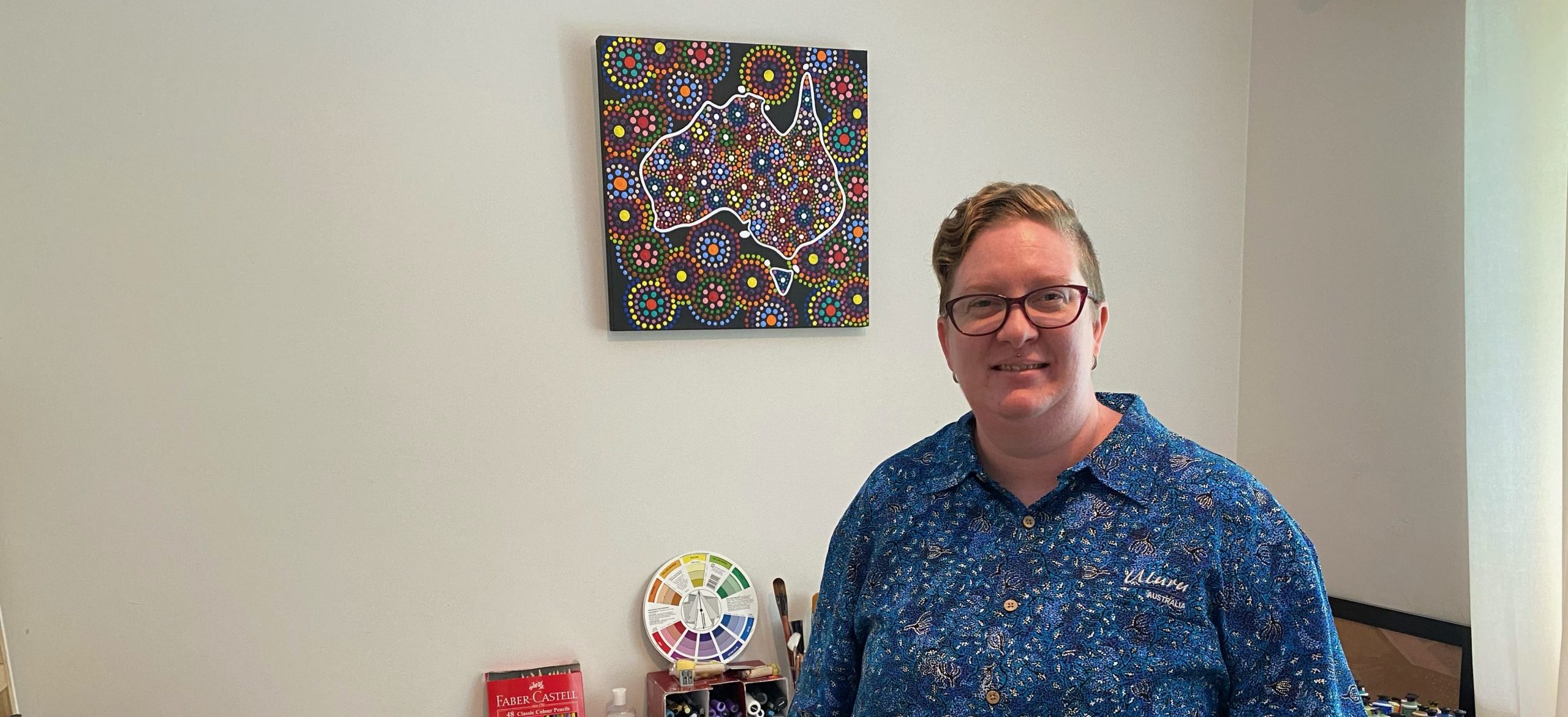
Aboriginal Bluethumb artist Jodie Freeman recently collaborated with watch brand Swatch. Click here to check out the awesome outcome of the project as well as ten other memorable partnerships with the company.
View this post on Instagram
10. Consider Constraints
Sometimes having too much choice or freedom with creativity can actually be counter-productive! Think about the times you were following a recipe and then realised you didn’t have half the ingredients. Having a limited amount of resources can often encourage more inventive means of making the most out of them. It also allows us to consider what is vital for something to work. If you dabble at analogue photography, why not try limiting yourself to black and white film? Having a restriction on materials like this will encourage approaching each shot with a different perspective.
Need a quick hit of inspiration? Get instant motivation with these ten quotes to boost your creativity.

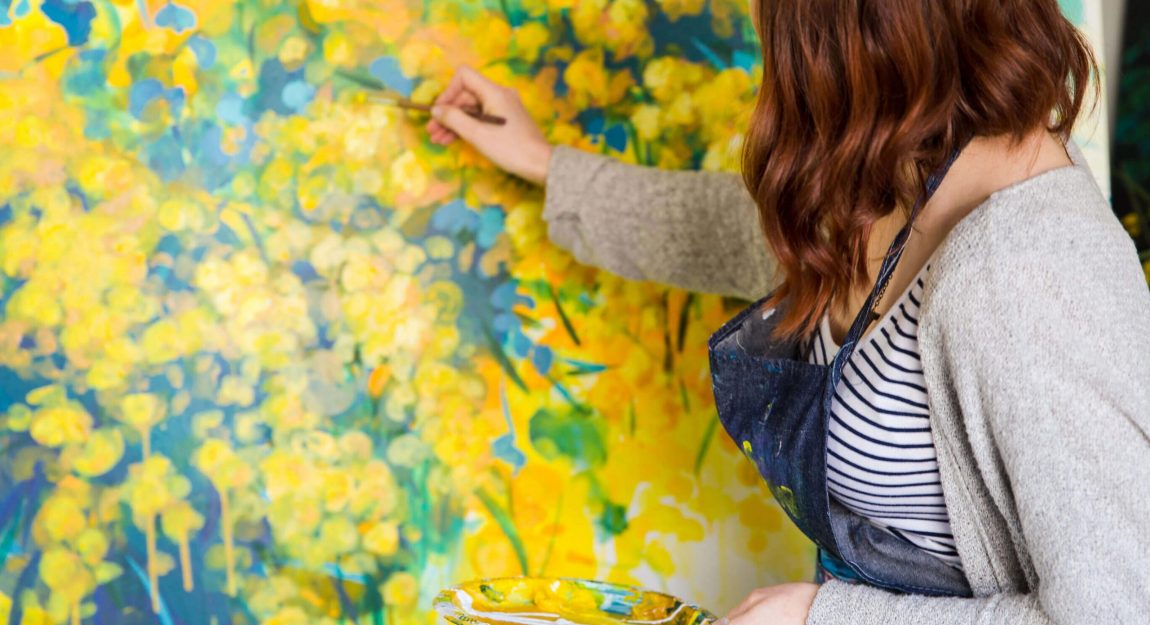
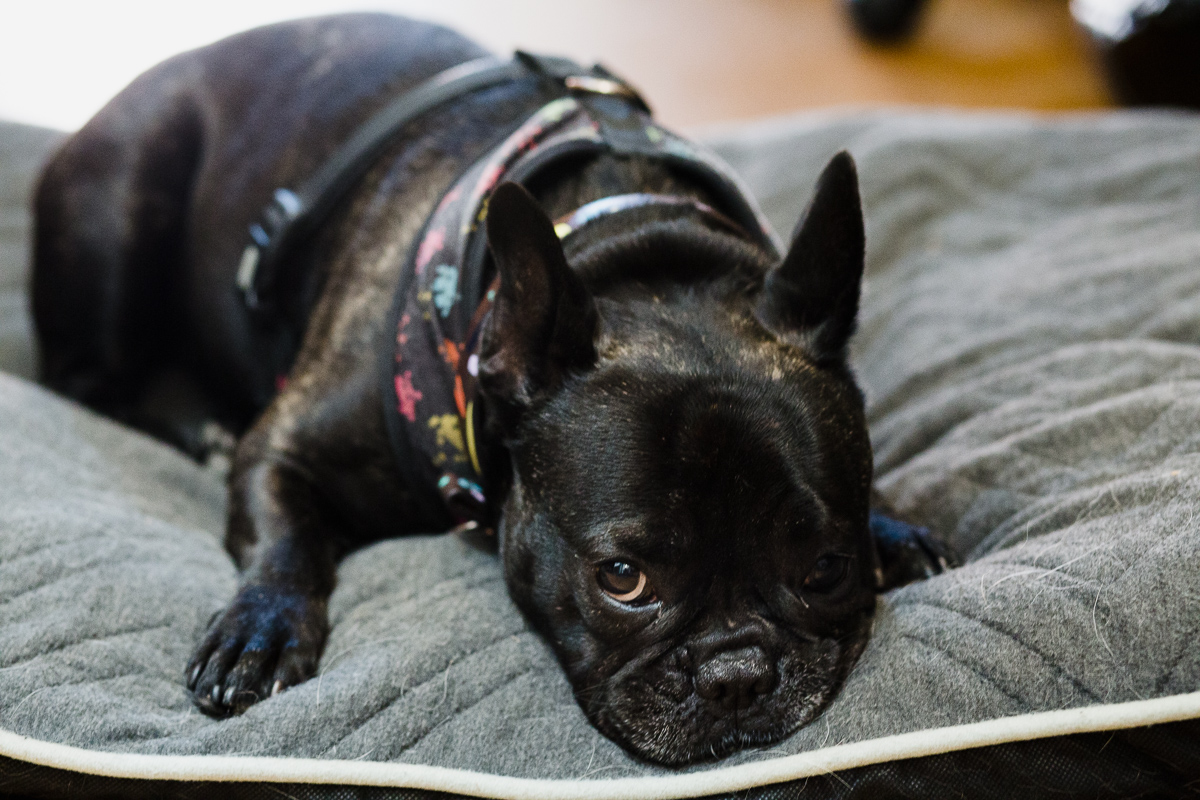


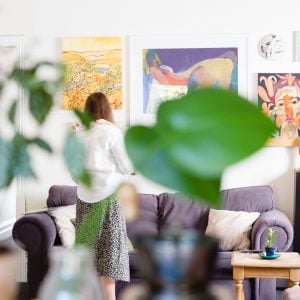
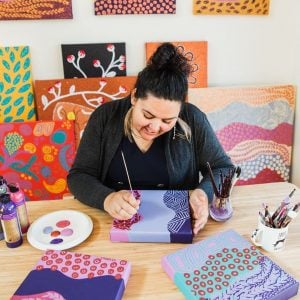






Great article. Loved it. Love the new office dog Frankie. So cute. Creativity comes in all forms from the heart to the canvas. From the fingers to the material.